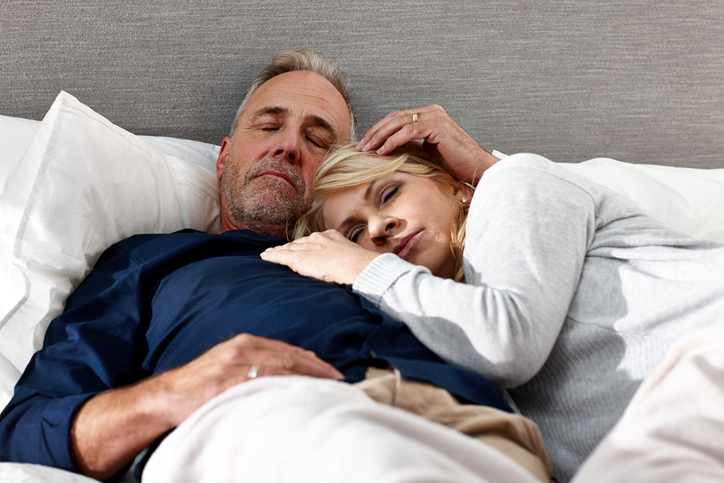How To Get Better Sleep
At menopause most women struggle with sleep. Whether through hormone imbalance, night sweats or hot flushes an uninterrupted night’s sleep may seem like a lost dream.

Did you know that your diet can seriously impact whether you get a good night’s sleep or not? Some foods can help you sleep, but others definitely won’t, so it helps to know which are which so you can set the stage for some more shut eye.
Reach for tryptophan-rich foods Were you given warm milk as a child to help you sleep? Well it isn’t an old wive’s tale as dairy foods contain tryptophan, which is a sleep-promoting substance. Other foods that are high in tryptophan include nuts and seeds, bananas, honey, and eggs.
Choose carbohydrates Carbohydrate-rich foods complement dairy foods by increasing the level of sleep-inducing tryptophan in the blood. So a few perfect late night snacks to get you snoozing might include a bowl of cereal and milk, yogurt and crackers, or bread and cheese.
Have a light snack last thing If you struggle with insomnia, a little food in your stomach may help you sleep. The key here is small, as a heavy meal will tax your digestive system, making you uncomfortable and unable to get to sleep.
Stay away from high fat foods As research shows that people who often eat high-fat foods not only gain weight, they also experience a disruption of their sleep cycles that is a good reason to avoid them. A heavy meal activates digestion, which can lead to nighttime trips to the bathroom.
Know your caffeine It’s no surprise that an evening cup of coffee might disrupt your sleep, but even moderate caffeine can cause sleep disturbances. Avoid the less obvious caffeine sources, like chocolate, cola, tea, and decaffeinated coffee. For better sleep, cut all caffeine from your diet four to six hours before bedtime.
Check your medicine Some over-the-counter and prescription drugs contain caffeine, too, such as pain relievers, weight loss pills, diuretics, and cold medicines. These and other medications may have as much or even more caffeine than a cup of coffee.
Check the label of nonprescription drugs or the prescription drug information sheet to see if your medicine interferes with sleep or can cause insomnia.
Alcohol is not your friend The idea of a nightcap isn’t straightforward. It may help you fall asleep faster, but you may experience frequent awakenings, less restful sleep, headaches, night sweats and nightmares. If you’re drinking alcohol in the evening, balance each drink with a glass of water to dilute the alcohol’s effects.
For a good night’s sleep, the better bet is to avoid alcohol four to six hours before bedtime.
Avoid the late night curry Lying down with a full belly can make you uncomfortable, since the digestive system slows down when you sleep. It can also lead to heartburn, as can spicy cuisine. so have that takeaway at least four hours before bedtime.
Limit protein at at night Protein, an essential part of our daytime menu, can be a poor choice for a bedtime snack. Protein-rich, high-fat foods are harder to digest. so instead go for a glass of warm milk or some sleep-friendly carbs, like crackers.
When fluid is not a good idea Yes, staying hydrated throughout the day is great for your body, but curtail your fluid intake before bed and make that last drink before 8pm. You’re sure to have interrupted sleep if you’re constantly getting up to go to the bathroom.
Cigarettes keep you awake You may think a cigarette is relaxing, but nicotine is a stimulant, with effects similar to caffeine. Avoid smoking altogether and especially before bedtime or if you wake up in the middle of the night.
Helpful information:
Looking at your your night time routine can really make a difference to your sleep. Bioidentical natural progesterone is a relaxant and so can aid sleep as well as balancing hormone.
Wellsprings Sleep Capsules are designed to help you drift off more easily and get a restful and refreshing night’s sleep with a combination of four carefully blended ingredients: L-Tryptophan, L-Theanine, Lemon Balm and Magnesium to help restore your natural sleep pattern.



















